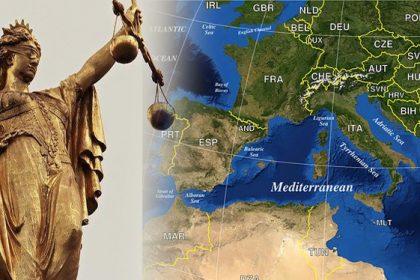After the UK’s departure it became a bit quiet around the Unified Patent Court of the EU states, which had been planned for years. Now is the new year 2022, and it is time to take a look: what about the UPC?

The Unified Patent Court (UPC) has been conceived as a specialised jurisdiction exclusively for the Member States of the European Union. The aim is to unify patent law and patent legislation in the EU, analogous to the already practised harmonisation and unification of European trade mark and design law.
For patent law, there is nothing comparable in the Union yet. This is because – contrary to what its name suggests – the European patent, which is registered via the European Patent Office (EPO), is neither limited to EU member states nor is it uniform. Rather, it is a bundling of national patents, which must, however, be validated in each individual EPO member state.
UPC – unified jurisdiction
The Unified Patent Court is supposed to improve this for the EU states. European patent applications within the EU are supposed to be standardised and simplified – and above all be subject to uniform jurisdiction. However, this is exactly the sore point that is also known from other political EU disputes: not all EU states want to surrender their sovereignty over their rights to the EU, not even in the area of patent rights.
It is true that the European Unified Patent Court would only rule on European unitary patents, so as with trade mark and design law, there would still be national patents under national jurisdiction in addition to EU unitary protection. But national jurisdiction will have to subordinate itself to UPC jurisdiction. Ultimately, this was the reason for the constitutional complaint against the UPC in Germany, which was rejected by the German Constitutional Court in July 2021 – as we reported.
The politically desired establishment of the Unified Patent Court for the EU has been dragging on for a long time. Spain and Poland have not signed the UPC agreement, and Germany and England have also had a hard time with it for a long time.
England and especially Germany were hesitant
After some back and forth in the UK, the UK ratified the UPC Agreement in 2018, but then in 2020 Prime Minister Boris Johnson announced in the wake of the Brexit that the UK would not join the EU’s Unified Patent Court – a loss for the UPC before it had even begun.
In Germany, the constitutional complaint against the UPC slowed down the project for years – which was rejected by the German Constitutional Court in July 2021. But in the end, Germany ratified the Protocol on Provisional Application of the Agreement on a Unified Patent Court (PAP) in September 2021. The PAP is considered the final phase of the construction of the Unified Patent Court, because with the entry into force of the PAP Protocol, the legal capacity and organisational capacity of the European Unified Patent Court will be established: the governing bodies of the court will be composed and judges will also be selected for the Unified Patent Court.
PAP must be ratified by 13 states
However, the PAP has not yet been ratified by enough EU states. Shortly after Germany, Slovenia also ratified the PAP (in October 2021), but there is still one more EU state missing for the PAP to enter into force. 12 EU Member States have acceded to the PAP Protocol, but according to the Statute there must be 13 EU States. The Preparatory Committee for the Unified Patent Court, headed by Alexander Ramsay, is confident that PAP will enter into force soon, anyway.
What’s next?
In this respect, all proponents of the UPC hope that UPC will really come into force in the course of 2022. There is an chance for that, but first the PAP must enter into force.
And in the end, the question will be which of the EU states will deny to participate in the UPC. The fact that Poland and Spain have so far not declared themselves in favour of the UPC is a burden for the project; these two EU states are both populous and interesting for patent applicants. The fewer states that ultimately participate in the UPC, the more likely it is that patent applications and patent disputes will remain a patchwork quilt in Europe – despite the UPC.
Protecting IP rights – your issue?
Our lawyers have many years of expertise in trade mark law as well as patent and design law and are also authorised to represent you before any court in Germany as well as internationally.
Sources:
Image:
Clker-Free-Vector-Images | pixabay | CCO License und pixel2013 | pixabay | CCO License








Leave a Reply